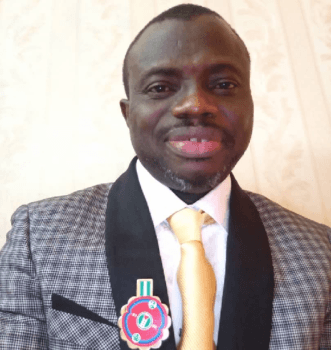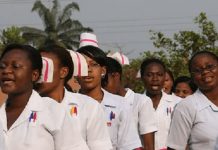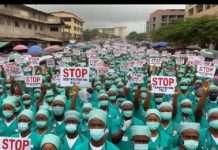I humbly bring good tidings and solidarity message to all nurses and midwives in Nigeria, as we celebrate Year 2020 as the year of nurses and midwives. This is not a mere coincidence but an evolving agenda and a divinely-driven circumstance which encompasses global actions, objectives and programmes to resuscitate the spirit and letters of that great phenomenon, nursing.
I felicitate with the entire nursing and midwifery community for our selfless services. I urge us to redouble and strongly reinvigorate our numerous efforts at repositioning the health sector and providing accessible, affordable and quality healthcare services to the Nigerian populace.
It is in the realisation of our numerous vital roles that the global community decided to celebrate and give pride of place to nurses and midwives worldwide, which further gives credence and support to our great works, towards the attainment of welfare for the less-privileged, women, children and those who can neither afford medical tourism nor afford private healthcare services.

Nursing and midwifery services are the hope of the Nigerian masses, whose advocates we are. As advocates and solicitors for the right to health of the citizenry, as fundamentally stipulated in Article 25 of the 1948 Universal Declaration of Human Right by the United Nations, this mission calls on all nurses and midwives to vigorously pursue the goal.
Nigeria, as part of the global community, is witnessing various challenges in the attainment of efficient healthcare services through (UHC). At the centre of the struggle for the attainment of UHC are the nurses and midwives, who are often the unsung heroes and heroines of the health sector.
Nurses and midwives fundamentally are the peoples’ advocates on health affairs, and they serve as the pivot around which other healthcare professionals revolve to deliver their services. While the importance of nurses and midwives is echoed across literatures, their roles remain largely misunderstood or criminally misapplied and misinterpreted for cynical motives.
Often the responsible agents do this to cover their inadequacies or to cover the glittering features of the nursing profession. Our voices are often submerged and our roles are impeded by unfriendly policies and conspiracies which have inflicted a lot of retrogressive tendencies, not only on the professionals, but painfully on the services that the Nigerian citizens are entitled to.
Interestingly, no health policy can succeed without the involvement of nurses and midwives. The Sustainable Development Goals (SDGs) or Universal Health Coverage (UHC) cannot be achieved with the relegation of nurses and midwives. It is in realisation of this that the world Health Organisation (WHO) leading others like the International Confederation of Midwives, International Council of Nurses and Burdett Foundation, as well as the United Nations Fund for Population Activities (UNFPA) identified the vital roles nurses and midwives play in providing healthcare services in every part of the globe. WHO stressed that “they are often the first and only safe and reliable point of care in their communities.”
The WHO has declared the year 2020 as the Year of the Nurse and Midwife. The essence of this is to reposition nursing and midwifery globally towards the attainment of the SDGs, especially the health-related SDGs. This advocacy is to secure and enable the government to lead the way in the attainment of UHC delivery services by empowering nurses and midwives.
Effects of shortage of nurses and midwives at PHCs
The collapse of Nigeria’s primary healthcare centres (PHC) system was the resultant effect of the exit of nurse and midwives from the PHCs, with their replacement by lower level health cadre who had suboptimal training and skill. Painfully, today, we are in more precarious health situations than what it was before the mass production of CHEWS, which were aimed at substituting nurses and midwives in primary healthcare in Nigeria.
MDG goals were met in most countries that invested in nursing and midwifery human resources development for health workforce. No matter the resources pumped into empowering a butterfly, it cannot fly as high as a bird. Butterflies belong to insect family, while the birds are of avian genealogy.
This is not contesting the point that these other middle level health workforce have roles to complement the work of the adequately trained professionals; but the global best practice is not to disparage, relegate or displace the original owners of health professional services for those that should assist them.
Despite this onslaught, there is an assurance of the preparedness of all the sectors of nursing services that we are more than ever before resolved to revamp the words and letter of Florence Nightingale in knowledge, skills, expertise, attitude and practice to work relentlessly to reclaim the lost glories of our cherished health sector. (Continues next edition…)










Thank you nurses and midwives. All your efforts and other medical professionals are highly appreciated.